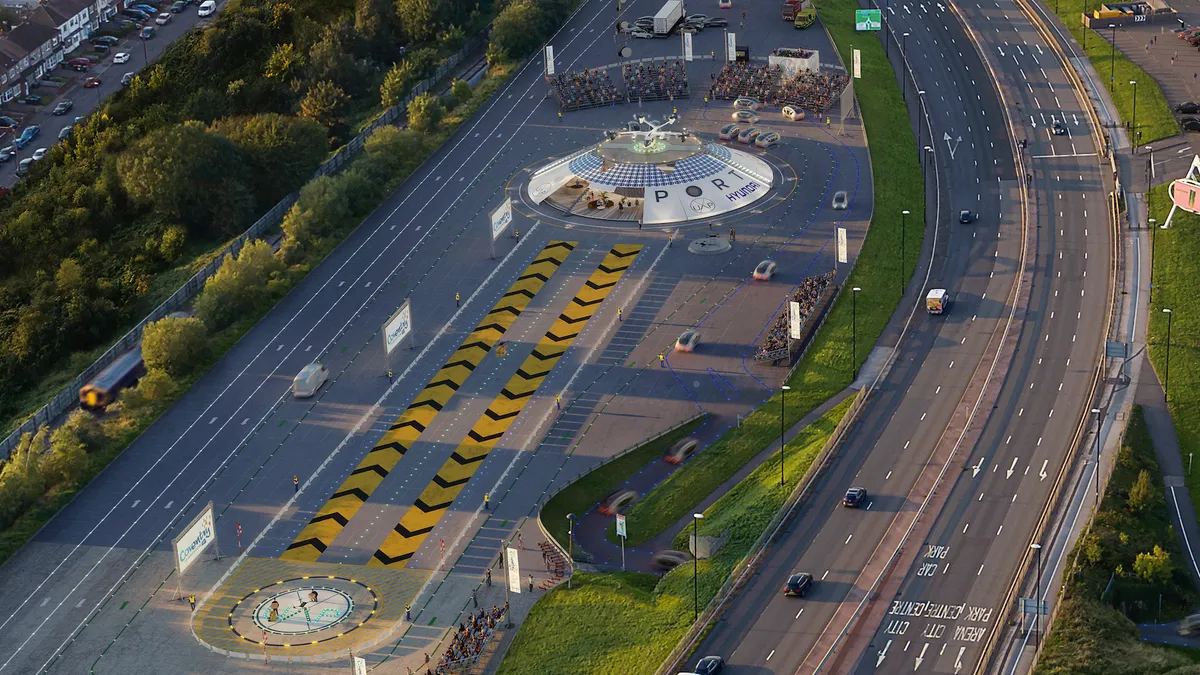The world’s first urban airport dedicated to electric air-taxis and drones has received funding from the UK government.
The transport hub, named Air-One, will open in November, as part of Coventry's 'City of Culture' celebrations. Its creators, a new company called Urban Air Port, will use the event to demonstrate how an off-grid, hydrogen-powered urban airport would work.
In essence, the site would provide a space for the charging and loading of drones that would ferry deliveries around the city. This could ease congestion in city places packed with delivery vans and therefore improve air quality.
The project also has ambitions to host electric vertical take-off and landingaircraft (eVTOLs), which could shuttle passengers into the city centre and back.
Urban Air Port aims for the Air-One to be a hub at the heart of a network of drone traffic corridors.One of the proposed 'highways in the sky' is the 15km routebetween Coventry and Kenilworth, which is currently being mapped out.
Read more about future technology:
- Science’s cutting-edge: seven ideas you should know about in 2021
- Could your self-driving car choose to kill you?
- The technology solving the ocean’s greatest mysteries
This small airport could also be dropped in to provide infrastructure where it's needed, according to Ricky Sandhu, Urban Air Port's founder and CEO."We've started having conversations with the military, who in the event of a natural disaster could use the Urban Air Port to provide instant connectivity," he says.
As exciting as jetting around in flying cars sounds, the boring stuff, like airports, must be considered first. “Cars need roads. Trains need rails. Planes need airports. eVTOLs will need Urban Air Ports," Sandhu explains.

"Over a hundred years ago, the world’s first commercial flight took off, creating the modern connected world. Urban Air Port will improve connectivity across our cities, boost productivity and help the UK to take the lead in a whole new clean global economy.”
"Let’s get ahead of the curve for the next wave of electric mobility, and get the infrastructure in now."
While estimates from NASA value the urban-air mobility in the US alone at up to £375 billion in the near future, the current lack of infrastructure to support this novel technology presents a challenge.
By creating their new hub, the company has begun to tackle this challenge and hope to install over 200 zero emission electric airports globally within the next five years.
- Read more about the project in our interview with CEO and founder Ricky Sandhu.
Reader Q&A: Will electric cars reduce pollution?
Asked by: Kate Dennis, DurhamElectric vehicles’ engines don’t churn out polluting fumes, making them the obvious choice for improving local air quality in towns and cities.
But although they have the potential to drastically cut pollution, they are only as green as the electricity they run on. Given that most electricity globally is still produced by burning fossil fuels, charging an electric car can indirectly generate similar amounts of greenhouse gases to a petrol-powered vehicle, particularly in countries that rely heavily on coal power.
As the world embraces renewable energy, electric cars will increasingly gain the upper hand in years to come.
Read more:
